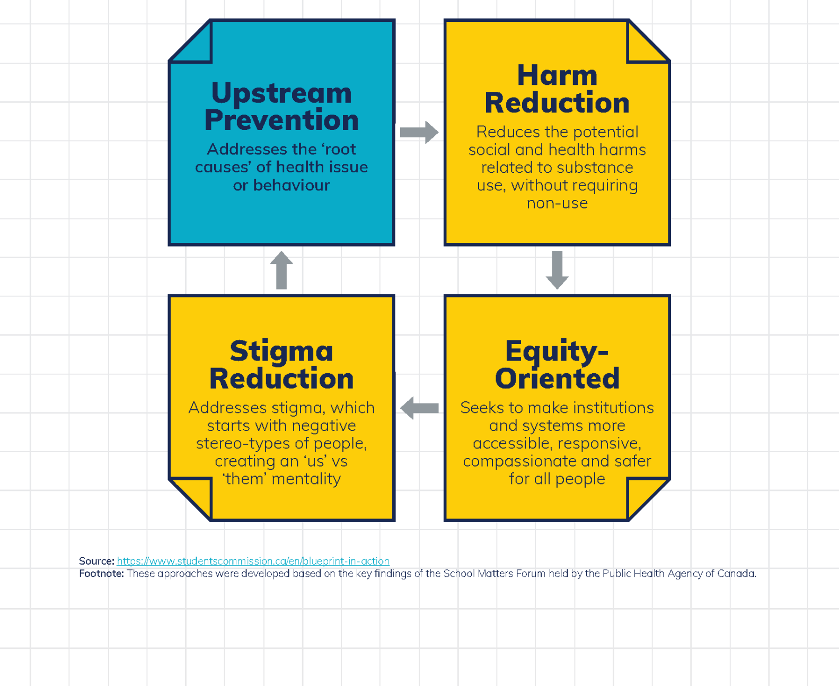Education on substance use is an integral part of health education, and perhaps never more important than now with the prevalence and rising rates of vaping, overdoses, and alcohol and cannabis use among children and youth in Canada.
Quality health education programming has the opportunity to teach students about such substances (e.g., prescription and non-prescription drugs, illicit drugs, tobacco, and alcohol), their effects, and skills and strategies needed to make healthy lifestyle choices, playing a critical role in substance use prevention and harm reduction.
Education on substance use can be difficult for many educators to navigate – possibly raising difficult conversations, student trauma, and other subject areas that may be uncomfortable for teachers and students alike.
People often use substances, such as controlled and illegal drugs, cannabis, tobacco/nicotine and alcohol for different reasons*, including:
- Medical purposes
- Personal enjoyment and satisfaction
- To better connect with their peer groups
- To cope with stress, trauma or pain
- Religious or ceremonial purposes
- To feel like they belong
Due to the complexity behind substance use, it's important to look at it as a continuum. Click the button below to see more.
When addressing substance use in schools, it's important that interventions, education and conversations be approached in four unique ways. They are as follows:

